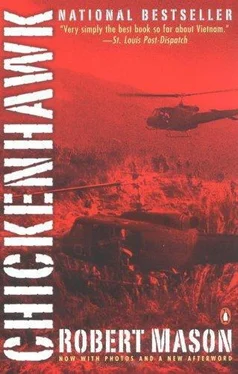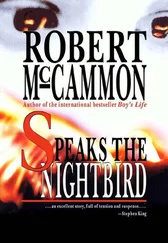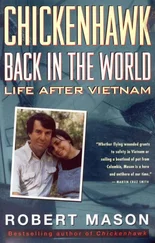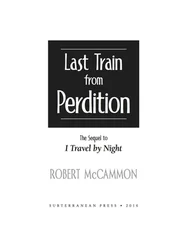I kept jumping out of my skin at night, so I asked the Veterans Administration for help. They declared me a 50 percent disabled veteran by reason of nervousness, now called Post-Traumatic Stress Disorder, Chronic (DSM III, 309.81), and issued me tranquilizers. I still drank, but now with the tranquilizers, and also smoked pot (introduced to me by students—I never saw the stuff in Vietnam). After nine months of school I dropped out and moved my family to a small village in Spain. While we were there, America put the first man on the moon. After seven months, there was no improvement in my outlook or attitude, so we returned to the States.
I worked as a technician in an electronics company. To the drinking, tranquilizers, and pot, I added a new vice: a girlfriend. When Patience said she was going back to school, with me or without me, I also returned.
During the two years it took to finish my degree in fine arts, Patience and I broke up for a month. I was up to almost a bottle of whiskey a day, and four or five Vali ums, yet I was still as tense as a snake. I was seeing shrinks weekly at the VA, but the nightly wake-ups continued.
When I graduated, in December 1971, I started a commercial photography business. In less than a year it failed. I tried to get a job with the government as an aircraft dispatcher, deciding what ships were flyable and what ships needed maintenance. I wanted to be around helicopters. I was turned down because of my disability. Even Congressman Don Fuqua could not get the government to hire this disabled vet, though he tried hard. The turn-down notice sent me was in an envelope stamped with the slogan “Don’t forget, hire the vet.”
The war was still going on in Vietnam, and inside my head.
My father risked some money to start an import company with me. I wanted to buy pocketknives in Spain and market them through the mail. I had a car wreck in Portugal, broke my hip, and we ended up selling thirty knives. So much for importing.
Finally, through an intricate series of business deals over a three-year period, I became vice-president of a mirror-manufacturing company in Brooklyn. There I had the money I wanted, I had fifty employees under me, and I quit using alcohol and tranquilizers. Still, I was painfully dissatisfied. And I continued to jump awake at night.
By now I had been back from Vietnam for ten years. I would not allow myself to believe that my unhappiness could be a reaction to my experience there. Instead I drew the conclusion that I was somehow basically inferior or mentally disturbed.
Two and a half years after I started at the mirror company, I resigned my position. We moved back to Florida, to ten acres of land next to the Santa Fe River. I built a cabin. Encouraged by my wife and friends, I decided to write about Vietnam.
Things went badly. I had arranged a separation settlement from the mirror company that allowed us to survive while I built the cabin and wrote. When the money ran out, Patience got a paper route to make ends meet. I looked for work too, and finally decided also to run a paper route because of the free time it would give me for writing.
The car broke down and the bills began to pile up. For the time I had spent writing, I got four rejections.
What did the desperate man do? I can tell you that I was arrested in January 1981, charged with smuggling marijuana into the country. In August 1981, I was found guilty of possession and sentenced to five years at a minimum security prison. I am currently free as of February 1983, appealing the conviction.
No one is more shocked than I.
I recently visited the Night Stalkers, the 160th Special Operation Aviation Regiment (Airborne). These army aviators perform rescues, medical evacuations, and combat assaults wherever in the world they are needed. (Their mottos: “Night Stalkers Never Quit.” When they want to be more specific, they use: “Death Lurks in the Dark.”) They lost two Blackhawk helicopters and several pilots and crewmembers in Somalia which was depicted in the book and film Black Hawk Down.
The Night Stalkers had invited me and Bill Reeder (Col. USA Ret) to talk about jungle flying. Bill tells people that if they want to know what it was like to fly helicopters in combat in Vietnam, read Chickenhawk. Which is a stretch considering that I was a WO-1 Slick pilot, a landing-craft-of-the-air driver who got out of the army the moment his commitment was up. Reeder is a two-tour combat pilot, shot down on both tours in Vietnam. He was shot down first in a Mohawk surveillance airplane in 1969. He and his copilot were recovered by the air force after a firefight with the encroaching enemy. In 1972, he was shot down in a Cobra gunship while defending the Special Forces camp at Ben Het, which was being overrun by the NVA. Bill, his ankle wounded, his back broken in the crash (his front-seater died soon after impact), was able to evade the enemy in the jungle for three days before being captured. He spent almost a year as a POW, first in a cage in the jungle and then, after a 400-mile walk, at the Hanoi Hilton, from which he was released in 1973.
Colonel Andy Miliani, Regimental Commander of the 160th, told us that because the Night Stalkers were flying in the deserts and mountains of Afghanistan and Iraq, they were not as knowledgable about jungle operations as he thought they ought to be. Considering the present state of the world, Colonel Miliani thought it would be good for his men to hear from us what it was like to fly helicopters in jungle missions.
More than a hundred Night Stalker pilots showed up for the presentation, which consisted of Bill and me talking about our experiences thirty years ago and taking questions. Almost all of them were younger than my own son, Jack. And almost all of them were veterans of Afghanistan or Iraq, or both. They flew CH-47 Chinooks, UH-60 Blackhawks, and OH-6 Little Birds, which, except for the Blackhawk, were flown when I was in the army; at least there were aircraft then with those same names. They looked about the same to me, until they showed us one of the Chinooks that the Night Stalkers use in Afghanistan. While they had suffered mechanical problems and were grounded several times early in the war, the new Chinook is reliable and amazingly powerful, able to lift more cargo than our heavy lifting Sky Crane could in 1965. All their helicopters are now highly advanced fighting machines. Computers, electronic cockpit instrumentation, night vision goggles, contact radar, and incredibly tough training allowed the Night Stalkers to do things with helicopters that Bill and I had never dreamed possible. Using contact radar, these guys routinely fly Chinooks at zero visibility, low level in mountain ravines, at night, in fog or rain or snow, following the moving needles on the dials of their instrument panels. Sweat pours off aviators focused this intensely. The slightest deviation could kill everyone on board. These pilots were the best ever. What the hell could they learn from us?
Well, some things never change. They still have to land and take-off from tight LZs, overloaded with troops. They still have to dodge bullets. They still get shot down.
Safety tips when flying combat missions in the jungle? My advice: don’t go! Which they thought was pretty funny. As it turns out, these pilots have the same questions about the decisions that move them into the hottest places on earth as we did about being in Vietnam. The bottom line now, as then, is that it’s not their call. They are doing their jobs, unknown to most Americans, better than any group of aviators in the world.
At the beginning of the talk, Bill asked the pilots who had read Chickenhawk. Almost all of them raised their hands. It turns out that Chickenhawk —over twenty years in print—has become a sort of handbook for helicopter pilots all over the world. Since it was published in 1983, I’ve gotten a letter, a phone call, or an e-mail from a reader every day. The North Sea oil pilots read Chickenhawk; I’ve heard from air force, army, navy, and marine pilots. Military pilots in Great Britain and Australia read Chick enhawk. It’s published in English, Dutch, Hebrew, Polish, and Chinese, with a Czech version on the way. Now that I have a Web site (robertcmason.com), I get messages almost every day from Chickenhawk readers all over the world.
Читать дальше












